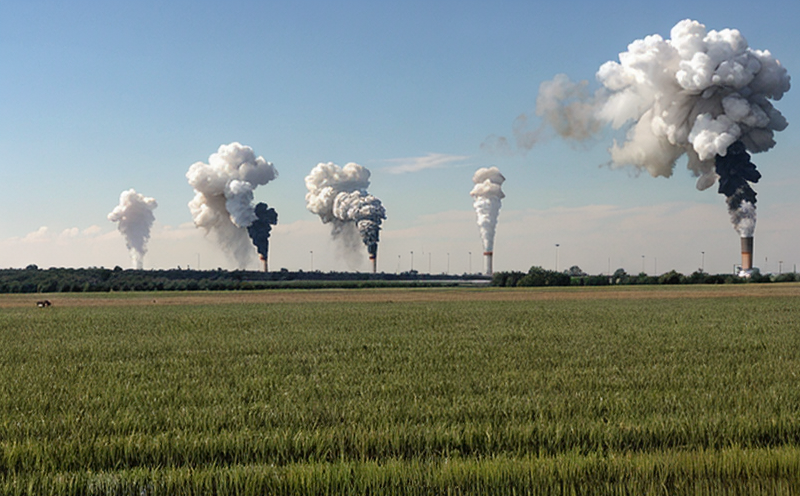Persistent Organic Pollutants Testing
The testing of Persistent Organic Pollutants (POPs) is a critical aspect of environmental monitoring and compliance. POPs are organic compounds that resist degradation through chemical, biological, or photochemical processes. They can persist in the environment for long periods, bioaccumulate, and biomagnify, posing significant risks to human health and ecosystems.
Our laboratory specializes in detecting and quantifying these hazardous substances in various matrices such as water, soil, air, and biota. This service is essential for ensuring compliance with international standards like ISO 16899-4:2016 and EN 12750:2003, which define methodologies for the analysis of POPs.
The testing process involves several stages including sample collection, preparation, extraction, purification, quantification using gas chromatography-mass spectrometry (GC-MS), and confirmation. Each step requires meticulous attention to detail to ensure accurate results. The use of advanced analytical techniques ensures that even trace amounts of POPs can be detected.
POPs testing is crucial for various sectors including pharmaceutical, chemical manufacturing, waste management, and environmental protection agencies. By identifying and quantifying these pollutants, we help our clients mitigate risks associated with their operations and contribute to sustainable development goals.
The importance of this testing cannot be overstated in today's world where pollution continues to be a pressing issue. Our laboratory is committed to providing accurate, reliable, and timely results that can inform decision-making processes aimed at reducing the environmental impact of POPs.
Quality and Reliability Assurance
The quality and reliability assurance of our POPs testing services are paramount in maintaining our reputation for excellence. We adhere to strict quality management systems that ensure every test is conducted under controlled conditions, using calibrated equipment, and by trained personnel.
We employ a rigorous quality control process that includes method validation, proficiency testing, and internal audits. Our laboratories participate in international proficiency tests such as those organized by the National Institute of Standards and Technology (NIST) to validate our methods and ensure consistency with global standards.
Data accuracy is maintained through continuous training for staff on the latest methodologies, regular equipment calibration, and adherence to ISO/IEC 17025 accreditation requirements. This commitment ensures that all results are reliable and can be trusted by regulatory bodies and clients alike.
Environmental and Sustainability Contributions
The detection of POPs plays a pivotal role in environmental protection efforts aimed at reducing the global burden of these pollutants. By offering this service, we contribute to the broader goal of sustainable development as outlined by the United Nations Sustainable Development Goals (SDGs).
Persistent Organic Pollutants are not only harmful to human health but also have severe ecological impacts. They can disrupt hormone systems in wildlife leading to reproductive and developmental problems. Our testing helps identify sources of pollution, enabling targeted mitigation strategies that protect biodiversity.
Through our POPs testing services, we assist clients in meeting regulatory requirements set by bodies such as the Stockholm Convention on Persistent Organic Pollutants. This convention aims to protect human health and the environment from these toxic chemicals through global cooperation.
Use Cases and Application Examples
| Application | Test Matrix | Purpose |
|---|---|---|
| Pharmaceutical Manufacturing | Water, Solvents | Detecting traces of manufacturing by-products that may contaminate water supplies. |
| Chemical Waste Management | Sediments, Soil | Identifying POPs in waste streams to ensure proper disposal and treatment methods are used. |
| Environmental Monitoring | Air, Biota | Detecting the presence of POPs in ecosystems to assess pollution levels and impacts. |
| Regulatory Compliance | Water, Soil | Ensuring compliance with international standards and regulations for chemical use and disposal. |
| R&D for New Chemical Products | Solvents, Air | Evaluating the potential release of POPs during product development and lifecycle. |
| Forensic Studies | Water, Biota | Determining historical contamination events by identifying past exposure to POPs. |





